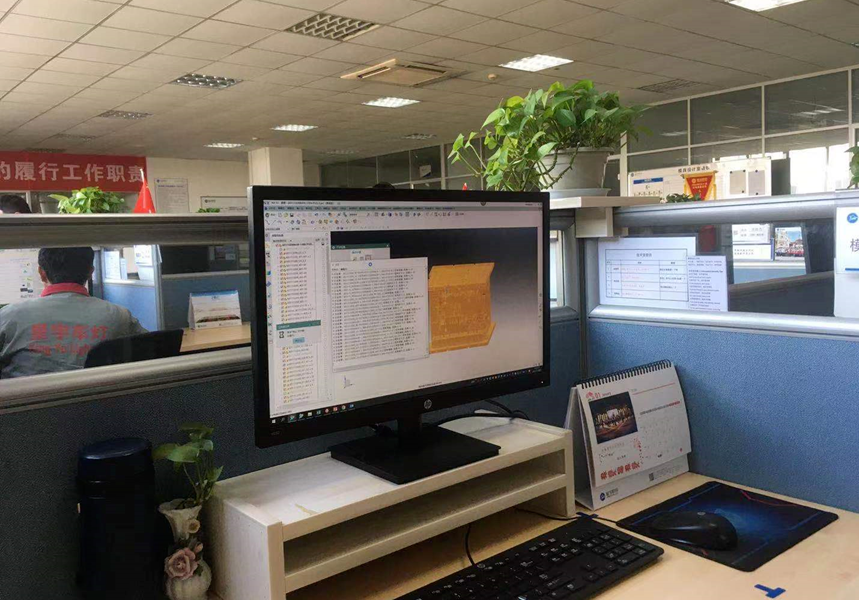EMan Mold Intelligent Manufacturing Management System
Digitalized Full-process Management of Mold Manufacturing


Automotive lamp molds are relatively specialized within the types of injection molds, characterized by large disparities and microstructures. Due to the high complexity and demanding appearance requirements, mold design and manufacturing present considerable challenges. Before the 1990s, automotive lamp molds were predominantly imported from Japan or Europe and the United States. To break this monopoly, several domestic automotive lighting companies emerged. Changzhou Xingyu Automotive Lamp Co., Ltd. was among the first to break this deadlock, paving the way for the localization of automotive lamp molds in China. XINGYU, having established its market presence through product innovation and quality, has been actively promoting smart manufacturing in recent years. By integrating digital transformation and information technology into management, design, processes, and production, the company has achieved intelligent management, digital design, and automated manufacturing, thus exploring a successful path for digital transformation in the lighting industry.
Despite rapid growth, XINGYU faced increasing internal management challenges: mold delivery schedules and quality control were significantly affected by business volume fluctuations, making cost optimization difficult; paper document management was becoming cumbersome with inefficiencies in timely circulation, and factory resource utilization was low. Moreover, as a publicly listed company, XINGYU had stricter management requirements, necessitating improved overall factory capabilities. Recognizing the urgency for improved management processes, increased work efficiency, reduced operating costs, and accelerated development, the management realized the pressing need for digital and automated transformation.

Starting from almost zero, XINGYU aimed to select a provider with strong growth potential and comprehensive solution coverage. Upon customer recommendations and after multiple evaluations, XINGYU partnered with Yimo, jointly crafting a comprehensive four-step plan for smart factory digitalization and transformation (i.e., a transparent digital factory, an efficient automated factory, a high-benefit lean factory, and a flexible smart factory). This plan was implemented step-by-step based on development stages from 2017 to now, gradually deploying the Yimo mold MES system, intelligent design system, semi-automation system, and multiple automated production lines. The vision of a smart factory is being realized, with returns exceeding expectations.
To address issues like underutilized mold department resources, low plan execution rates, and failure to meet project deadlines, XINGYU initially introduced the mold MES system. After system implementation, processes such as data entry, project compilation, process design, and production scheduling transitioned entirely from paper-based and manual tracking to a fully digital system. Although implementation was initially challenging, requiring "dual-path" operations alongside traditional paper tasks, XINGYU made concerted efforts on two fronts. Firstly, it set an example through internal promotion, conveying the benefits of the transition to every department and employee, boosting employee engagement through comprehensive training. Secondly, it introduced incentive schemes to reward employees excelling in digital transformation. Through these efforts, significant improvements were made in plan execution rates, equipment utilization, and project milestone alignment, achieving time and manpower savings via data visibility and process reconstruction: process design flows replaced manual tasks, reducing workload by one day.
To address issues like remolding orders and auxiliary scheduling affecting the new mold plan, XINGYU proposed separate schedules for remolding and auxiliary parts, avoiding interference with new mold planning. After multiple discussions and research, workshop plans are now auto-generated and updated, efficiently handling exceptional insertions and optimizing resource allocation. Presently, automated scheduling by Yimo APS has replaced manual scheduling, reducing manpower, shortening work durations by one day, increasing output by 2-3 times, and achieving mold production capacity of 300 sets.

By utilizing the EMAN intelligent design system, XINGYU effectively avoided issues such as duplicate or non-standard naming and incorrect or missing material selections during the manual assembly process. The use of the assembly extract function module eliminated the cumbersome process of creating new assemblies from scratch, increasing overall efficiency by 25%. The intelligent design system also helped XINGYU establish standards for typical structural components and standardized the processing and production procedures for automotive lamp molds.
Implementing automated processing reduced manual auxiliary operations, minimized downtime, and increased processing efficiency. In 2021, XINGYU added CMM automatic electrode inspection units and tracks for rough and finish steel material processing. After implementation, robots automatically manage materials, replacing tedious manual tasks. If tool wear or breakage occurs, exceeding tolerance settings, the system automatically shuts down and alerts. Manpower in the small three-axis night shift reduced from eight to two, mold manufacturing cycle shortened by 30%, and XINGYU gained a significant competitive edge in response speed.
The process of digital transformation is one of standardization and institutionalization for enterprises, requiring continual refinement through practice. Implementing information systems and software necessitates ongoing sorting, adjustment, and summarization to establish a standard system suitable for one's development needs. The successful implementation of any system involves a gradual learning curve, requiring patience and investment in training and promotion by enterprise leaders.
Through comprehensive planning and multi-scenario, multi-segment smart manufacturing reforms, combined with thorough implementation and cooperation within the enterprise, XINGYU has shifted from experiential to scientific management, reaping returns beyond expectations. Moving forward, XINGYU will continue along the planned four-step approach towards a flexible smart factory, utilizing industrial internet, 5G, and AI technologies to create a digital twin for workshops, enabling on-demand production, predictable workshops, controllable costs, preventable anomalies, and autonomous decision-making.